Gerontocracy's last gasp? What Biden's 2024 exit means for the future of US leadership
WASHINGTON – President Joe Biden’s exit from the 2024 presidential race marked a turning moment – and not just for the November election.
In stepping aside, and endorsing vice president Kamala Harris as the Democratic presidential nominee, Biden ignited fresh hope among voters across the country who months prior were apathetic at the prospect of a rematch between the 81-year-old president and 78-year-old former President Donald Trump.
Some political observers have expressed cautious optimism that Biden’s departure from the 2024 race could signal the beginning of the end of America’s gerontocracy, where power has been concentrated among older politicians.
The president during a speech Wednesday declared that “the best way forward is to pass the torch to a new generation,” the line a reference to the inauguration of John F. Kennedy, where America’s youngest-ever leader pledged to move the country forward.
By passing that proverbial torch, Biden joined a growing list of elder U.S. officials who in recent years have relinquished power to a rising crop of leaders. At the start of his presidency in 2021, Rep. Nancy Pelosi, then 80, led the House of Representatives. Sen. Mitch McConnell, then 78, led his party in the upper chamber.
Since then, Pelosi has handed leadership of the House Democratic caucus to New York Rep. Hakeem Jeffries, 53 and McConnell, after a series of freezes, announced earlier this year that he too will resign from his role as chief Senate Republican. According to a Business Insider report, the average age in Congress dipped from 61.7 years old in 2022 to 59.2 years old in 2023.
Ross Morales Rocketto, co-founder and co-executive director of Run for Something, which recruits young progressives to run for political office, described the past few years as “a sea of change” for American leadership.
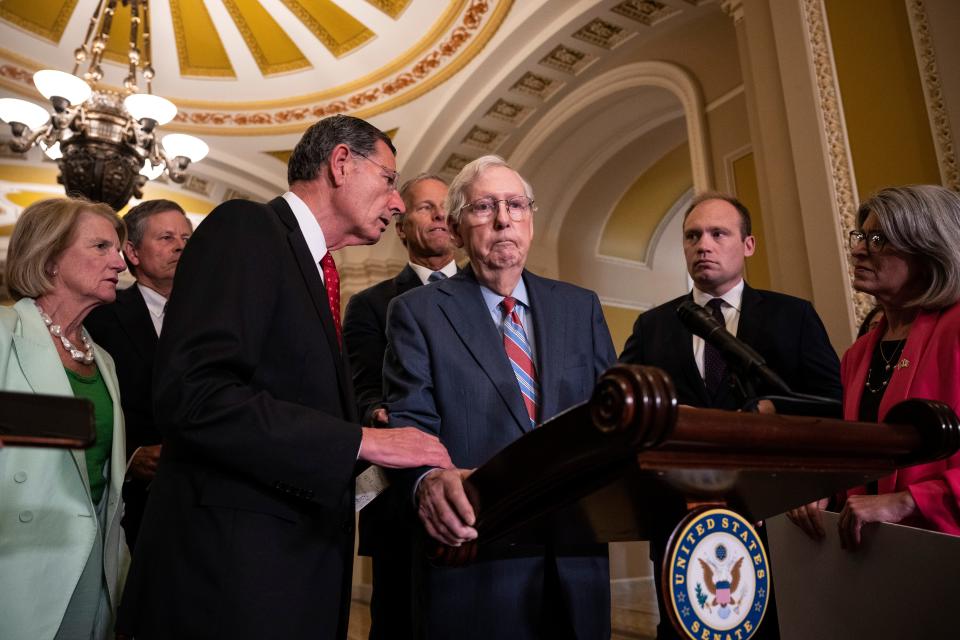
“But let’s be clear,” Morales Rocketto quickly warned. “We still have a deep-seated structural and systemic problem that goes far beyond any one individual.”
A political awakening
Prior to Biden’s poor debate performance, American’s had yearned for months to replace the 81-year-old and his 78-year-old opponent with new, fresher candidates.
But Biden’s decision to drop out came only after intense pressure from Democratic Party elites and voters who expressed deep concerns about the president’s mental acuity and ability to win the November election.
The urgent calls for Biden to exit the race stood in sharp contrast to the 2020 Democratic primary, when Biden beat out a field of 16 contenders, many of whom were younger.
That year’s election featured similar calls for Biden to stand aside, including from Rep. Eric Swalwell, D-Calif., who urged the then former vice president during an early debate to “pass the torch.” A grinning Biden responded that he was “still holding on to that torch.”
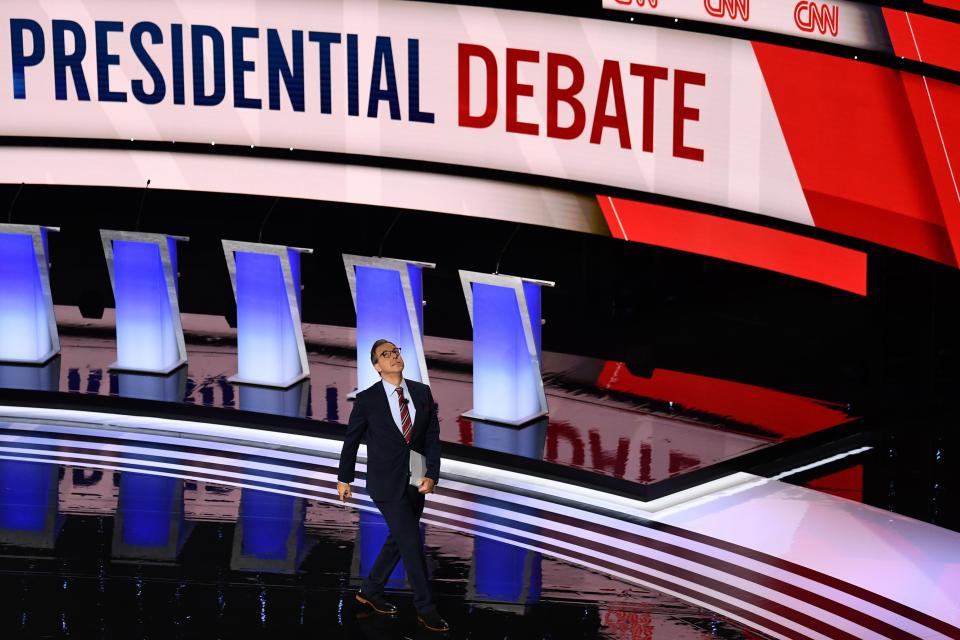
Biden ultimately won the Democratic nomination by claiming that, despite his age, he was the most experienced and electable candidate.
That argument didn’t hold the same resonance for voters this year after the first debate. More than 70% of Americans didn’t believe Biden had the cognitive ability to serve out a second term and polls showed him losing major swing states.
Patricia Taft, the great granddaughter of former President William Howard Taft, said she believes the shift in sentiment over the last four years signals a “decline in the appeal of older candidates,” and an uptick in demand for younger ones.
Vice President Kamala Harris’ campaign announcement, for instance, spurred a wave of excitement. Supporter-generated memes celebrating the California native – from “Kamala is brat” to “coconut tree” – spread across social media. And within the first 24 hours of announcing her campaign, Harris raised an eye-popping $81 million.
She’s also already polling higher than Biden did at any point in the 2024 cycle.
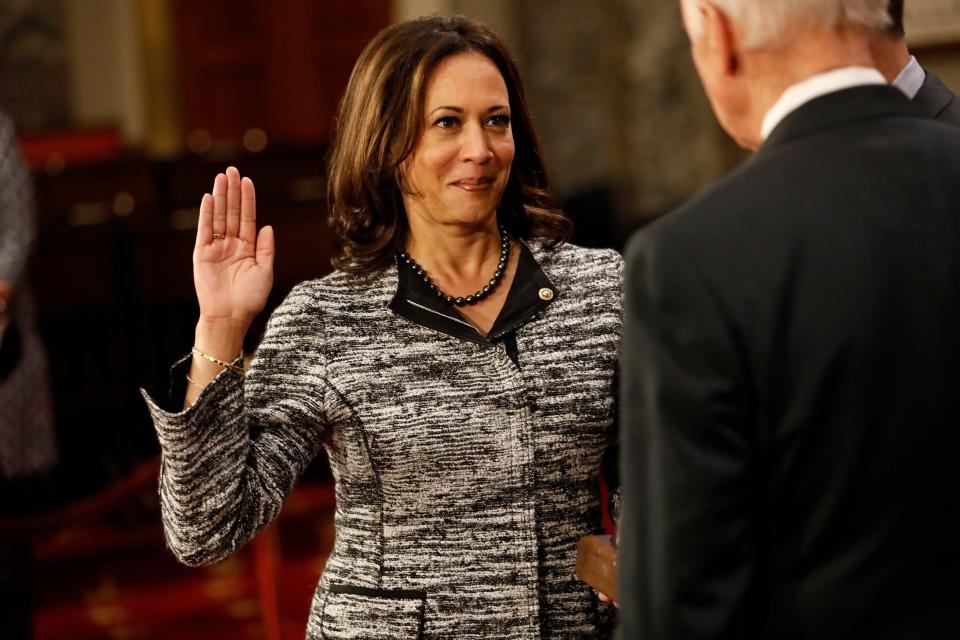
At 59, most people likely wouldn’t describe Harris as young. Born in 1964, Harris came of age at the end of the Baby Boomer generation, and at the dawn of Gen X. Scholar Jonathan Pontell describes Harris’ age cohort – the group caught in between – as Generation Jones. Former President Barack Obama is also part of this group.
But, when compared to Biden and Trump, Harris is closer to the average age for U.S. presidents on the day of their inauguration – 55.
Jason Carter, grandson of former President Jimmy Carter, said he partially attributes the surge in momentum for Harris to young people being “far more excited to have a choice for president that is not limited to two very old men.”
Democrats also see new electoral opportunities with Harris as the nominee. Sen. Brian Schatz, D-Hawaii, who was the youngest member of the upper chamber when he joined in 2012, believes that Harris has the chance to “make a generational argument” about what the future of the country should look like.
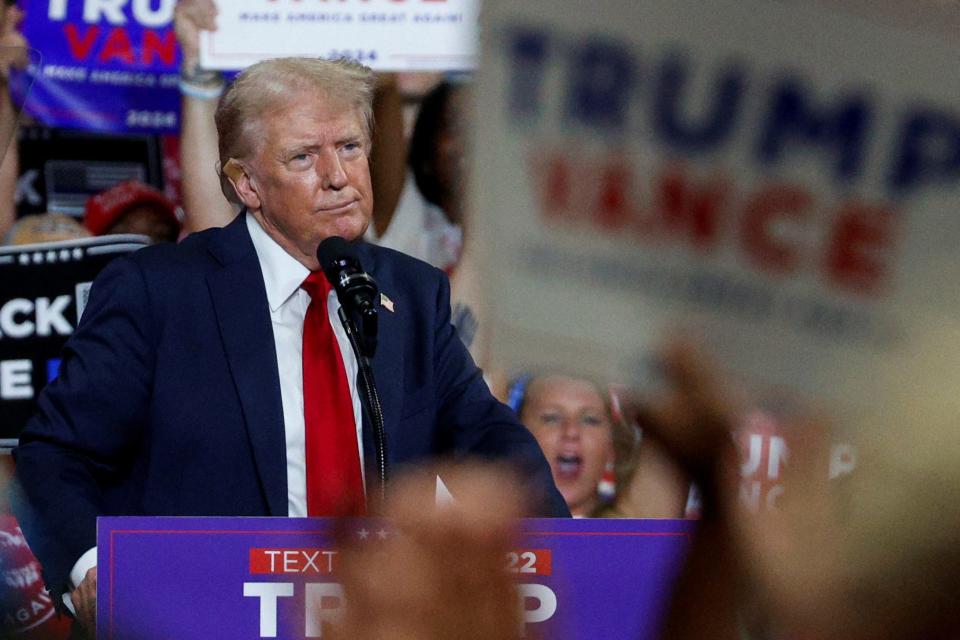
The party used to point out Donald Trump's old age as "a defensive counterpoint,” Schatz said. "Now we can say: We are the party that can course correct. We are the party that can respond to circumstances.”
Cautious optimism
Despite the renewed excitement, political experts say they’re not convinced yet that a true generational change in American leadership is afoot.
Many view Biden’s decision not to run for a second term as a selfless act that follows the American tradition of handing over power established by former President George Washington. Biden himself invoked the founders in remarks on Wednesday about his choice, saying they “showed us presidents are not kings.”
But it doesn’t mean that officials in other parts of the U.S. government will follow Biden’s lead. Congress today is still older than it has ever been. While former House leaders like Pelosi and Clyburn have stepped down from their posts atop the Democratic conference, they are still both running for reelection at age 84.
The top Democratic leaders in the Senate are all in their mid-to-late 70s, and some will be in their 80s by the time they finish out their terms. Senate Majority Leader Chuck Schumer is 73; he’ll be 79 at the close of his term in 2029. Sen. Dick Durbin, D-Ill., the second-ranking Democrat in the chamber, will be 83 when his term ends in 2027. Neither has expressed plans to hand over leadership, or retire.
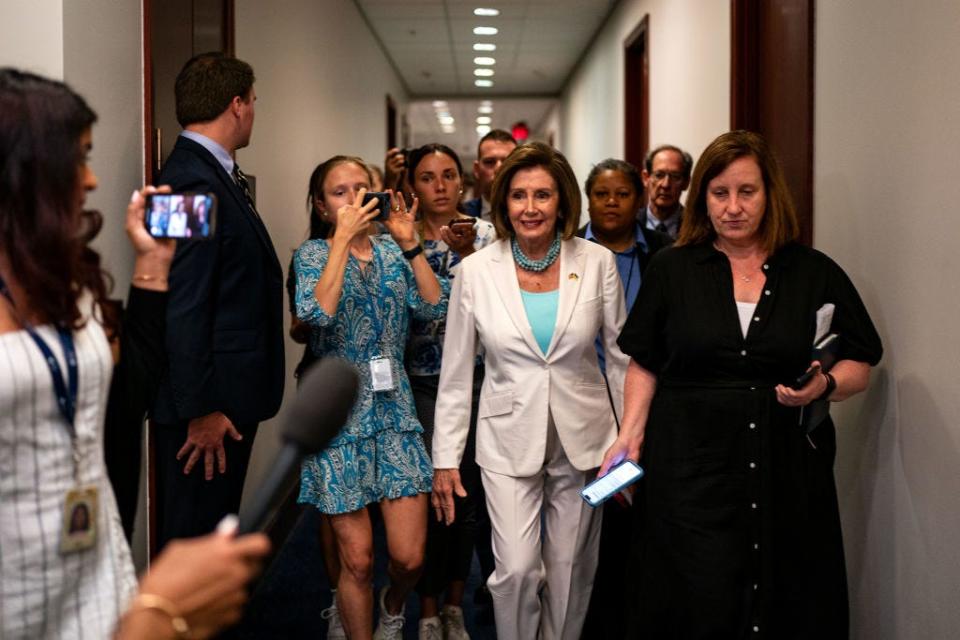
James Chappel, author of the book Golden Years: How Americans Invented and Reinvented Old Age, views the older age of U.S. leaders as “endemic to our political system.” Elected leaders rely heavily on private donations to fund their campaigns. And older voters, who often prefer older candidates, are much more likely to donate, Chappell said, giving leaders of advanced age a leg up in elections.
The closest the U.S. has come to a generational shift in the 21st Century is the 2008 election of Obama, who, like Harris, is a member of Generation Jones. People believed Obama’s presidency would usher in the beginning of a new era of political leaders.
Instead, the country elected another Baby Boomer in 2016: Trump.
“As much as historians like to look to the past for parallels or answers, politics is unpredictable,” said Laura Smith, a history professor at Oxford University. “Party elders aren't going anywhere unless pressure or individual context becomes insurmountable.”
Experts USA TODAY spoke with said they’re unlikely to know whether Biden’s baton pass to Harris marked an end to the gerontocracy until after the 2024 election.
If Trump wins in November, the presidency will merely flow from the Silent Generation – the group that grew up during the Great Depression and World War II – back to Baby Boomers.
“That's not really a shift,” Pontell said. The U.S. has so far had three Baby Boomer presidents: Bill Clinton, George W. Bush and Donald Trump.
If Harris does win, Pontell predicted that she could usher in “a stretch of Generation Jones presidents … partly because we're at a really good age.” Some of her top vice presidential picks, including Illinois Gov. JB Pritzker, 59, and Arizona Sen. Mark Kelly, 60, are in the same generational cohort.
Gen Xers, Millennials, and Gen Z might just have to wait a little longer.
Contributing: Riley Beggin, USA TODAY
This article originally appeared on USA TODAY: Gerontocracy's last gasp? How Biden's exit could alter US leadership.
